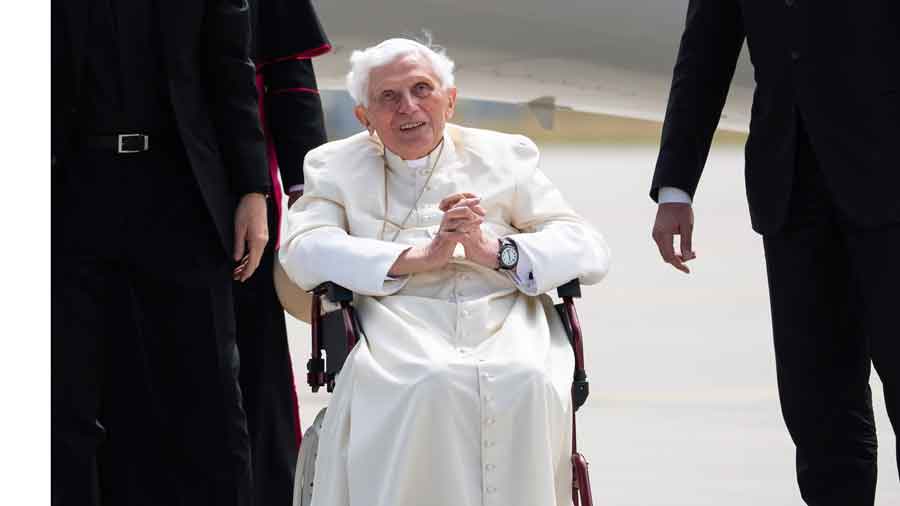Pope Benedict XVI, the eminent German theologian and conservative enforcer of Roman Catholic Church doctrine who broke with almost 600 years of tradition by resigning and then living for nearly a decade behind Vatican walls as a retired pope, died on Saturday at age 95, the Vatican said.
A pope’s death customarily sets in motion a conclave to choose a new leader of the Church. But Benedict’s successor, Pope Francis, was named when Benedict stepped down in 2013.
Now, a sitting pope is expected to preside over the funeral of his predecessor — an extraordinary spectacle in the history of the Church. The Vatican said on Saturday that Benedict’s funeral would be held on Thursday in St. Peter’s Square, with Francis presiding.
As is traditional, Benedict’s body will be laid in St. Peter’s Basilica on Monday so that the faithful can file by to pay their respects. He was a pope who always drew ardent loyalists, as well as strong detractors.
Even before his election as pope on April 19, 2005, Church conservatives saw him as their intellectual and spiritual north star, a leader who, as a powerful Vatican official, upheld church doctrine in the face of growing secularism and pressure to change to get more people into the pews.
Benedict’s critics are more likely to remember him as a crusher of dissent who did far too little to address sexual abuse in the Church, stumbled in some of his public declarations and lacked the charisma of his predecessor, John Paul II.
Francis fired or demoted many of Benedict’s appointees, redirected the Church’s priorities and adjusted its emphasis from setting and keeping boundaries to pastoral inclusivity.
Still, in some regards, Francis has built o n Benedict’s legacy, especially in addressing the child sexual abuse crisis.
Benedict was the first pope to meet with victims, and he apologised for the abuse that was allowed to fester under John Paul II.
He excoriated the “filth” in the Church and excommunicated some offending priests. But abuse survivors and their advocates accused Benedict of not going far enough in punishing several priests as a bishop in Germany, and in his handling of accusations against some priests as head of the Vatican’s doctrinal office.
He was also criticised as doing little to hold the hierarchy accountable for shielding — and so facilitating — child sexual abuse.
Ultimately, Pope Benedict bowed out during a period of scandals and immense pressures. He cited his declining health, both “of mind and body”. He had said that he had resigned freely, and “for the good of the Church”.
That resignation — the first by a pontiff since 1415 — is likely to be remembered as his most defining act.
New York Times News Service










